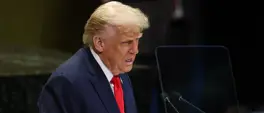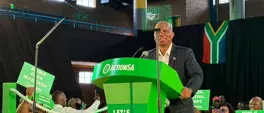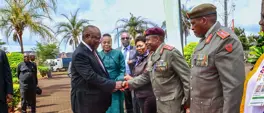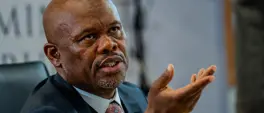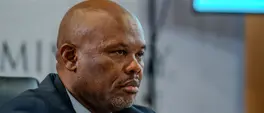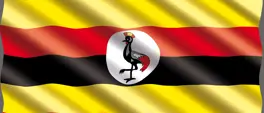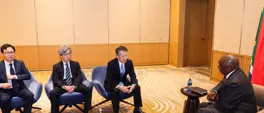Mali junta chief approves step towards restricting political parties
AFP
13 May 2025 | 16:19Junta chief General Assimi Goita's approval comes a day after the military-appointed parliament, the National Transitional Council, adopted the proposal.
BAMAKO, MALI - Mali's military ruler on Tuesday approved a bill revoking the country's political parties charter, which the opposition sees as a step towards its dissolution, according to a presidency decree.
The suspension of the charter, which regulates the functioning, creation and financing of political parties, marks a new act of repression of dissenting voices in the west African country, ruled by the army since two coups, in 2020 and 2021.
Junta chief General Assimi Goita's approval comes a day after the military-appointed parliament, the National Transitional Council, adopted the proposal.
A national assembly organised in late April - virtually wholly boycotted by the opposition - called for the dissolution of parties and the toughening up of conditions for their creation and financing.
"All dispositions" of the law regarding the political party charter "are and remain revoked", the decree from General Goita's office said on Tuesday.
Since the coups, a welter of retaliatory measures, legal proceedings and the dissolution of a swathe of associations have considerably weakened the Malian opposition.
That squeeze on civic space comes against a backdrop of demands by the authorities for the country to unite behind the military.
Since 2012, Mali has been mired in violence carried out by jihadist groups affiliated with Al-Qaeda and the Islamic State group, as well as other criminal organisations.
The April assembly also proposed a five-year renewable presidential term for General Goita without elections.
'DEATH OF PLURALISM'
By repealing the party charter, the junta has "signed the death knell of political pluralism in Mali", former justice minister Mamadou Ismaila Konate said on Monday.
In an op-ed, Ismaila said the move was "an attempt to systematically demolish political countervailing powers" in Mali.
Malian Director General of Territorial Administration Abdou Salam Diepkile disagreed.
"The repeal of this law does not call into question the existence of political parties," Diepkile told public broadcaster ORTM.
He said the decision was in line with the desire to "stop the proliferation of political parties" in the country.
Fearing dissolution, a coalition of roughly 100 parties recently formed to "demand the effective end of the political-military transition no later than December 31, 2025", calling for "the establishment of a timetable for a rapid return to constitutional order".
The military government had initially committed to hand over power to elected civilians in March 2024.
In a rare act of protest against the junta, the coalition mobilised several hundred people for a demonstration in the capital Bamako in early May.
The junta has suspended French television channel TV5 Monde for a reportage on the May 3 demonstration which the authorities argued "lacked a commitment to impartiality", according to a ruling from Mali's communications regulator.
TV5 Monde has previously fallen foul of the junta, which suspended the channel for three months last year.
Other media from former colonial power France, including France 24 and Radio France Internationale, have been banned permanently.
Get the whole picture 💡
Take a look at the topic timeline for all related articles.
